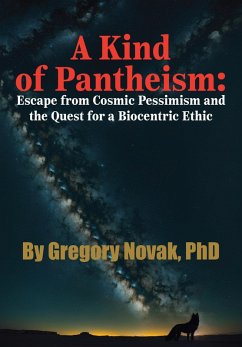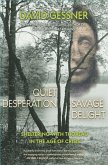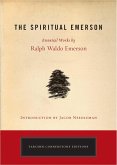A Kind of Pantheism: Escape from Cosmic Pessimism and the Quest for a Biocentric Ethic explores how such nineteenth-century transcendentalists as Henry David Thoreau and John Muir advanced a biocentric ethic that recognized the intrinsic worth of both plants and animals. This ethic required a pantheistic cosmology to be coherent, however. As science progressed, with developments in evolutionary biology and ecology, the paths of environmental ethics and animal rights diverged. But at the turn of the twentieth century, the nature writer Joseph Wood Krutch, inspired by quantum theory, provided a crucial link that reconnected these fieldsa contribution often overlooked even by his own biographers.
This book traces the historical development of humanity's attitudes toward the non-human world, highlighting the influence of philosophical, religious, and scientific ideas. In addition to Krutch, it brings attention to such lesser-known figures as Henry Stephens Salt and John Howard Moore, emphasizing their roles in shaping biocentric thought. Ultimately, the book argues that animal rights and environmental ethics are two expressions of the same biocentric outlook. By focusing on Krutch's unique contribution, the book offers a way for secular thinkers to reclaim a pantheistic ethic. In the process, A Kind of Pantheism solves the problem of cosmic pessimismwhich postulates the cold and meaningless universe implied by modern science, a concept that often undercuts the very ethic it suggests. Through the process of free inquiry, new answers emerge.
This book traces the historical development of humanity's attitudes toward the non-human world, highlighting the influence of philosophical, religious, and scientific ideas. In addition to Krutch, it brings attention to such lesser-known figures as Henry Stephens Salt and John Howard Moore, emphasizing their roles in shaping biocentric thought. Ultimately, the book argues that animal rights and environmental ethics are two expressions of the same biocentric outlook. By focusing on Krutch's unique contribution, the book offers a way for secular thinkers to reclaim a pantheistic ethic. In the process, A Kind of Pantheism solves the problem of cosmic pessimismwhich postulates the cold and meaningless universe implied by modern science, a concept that often undercuts the very ethic it suggests. Through the process of free inquiry, new answers emerge.
Dieser Download kann aus rechtlichen Gründen nur mit Rechnungsadresse in A, D ausgeliefert werden.









